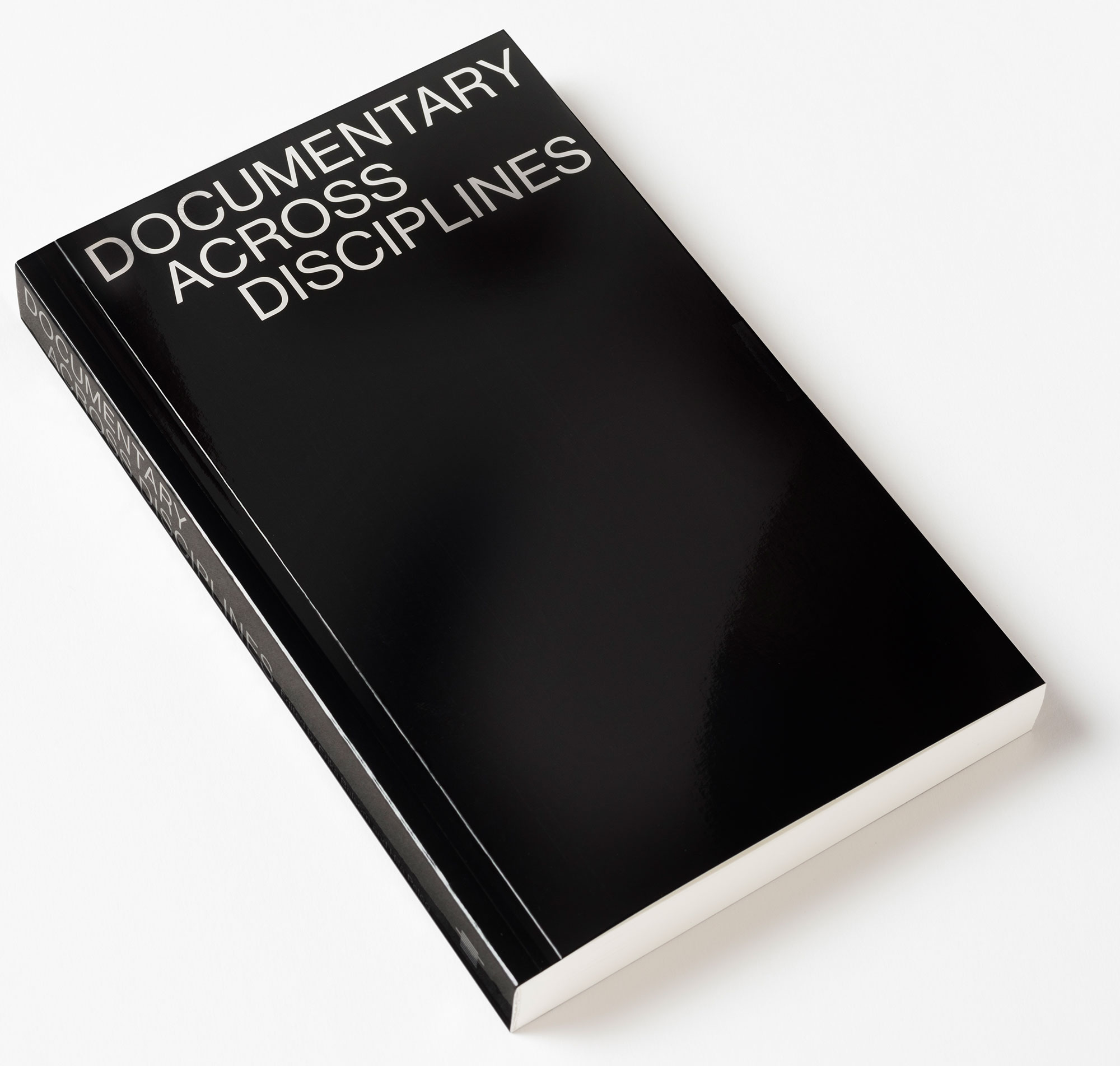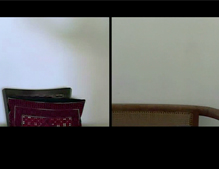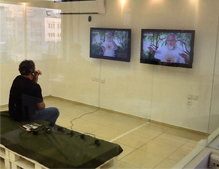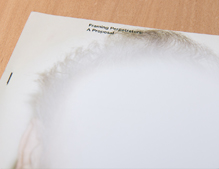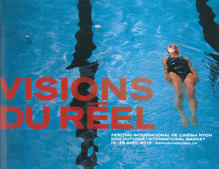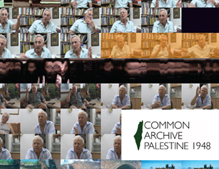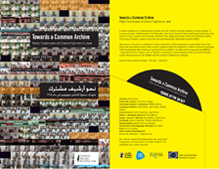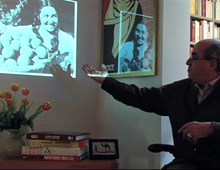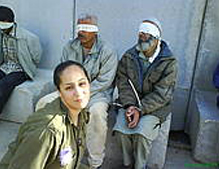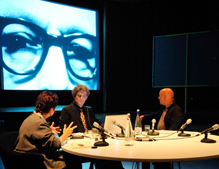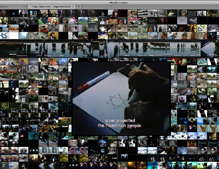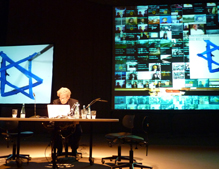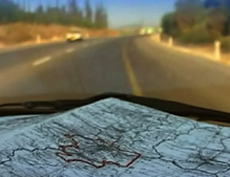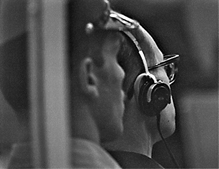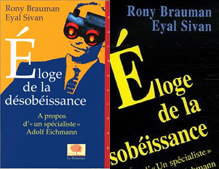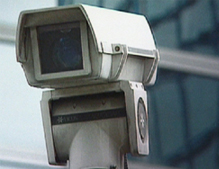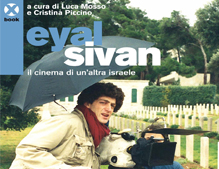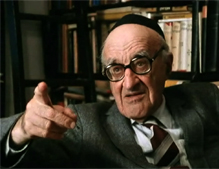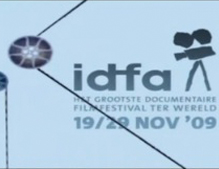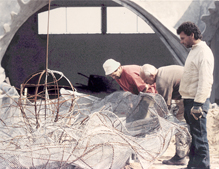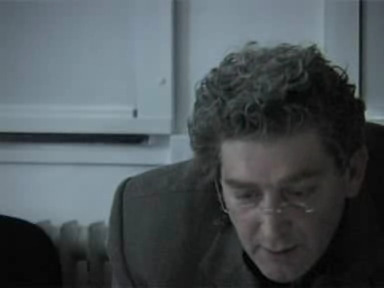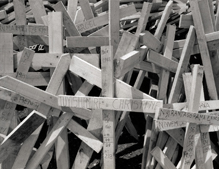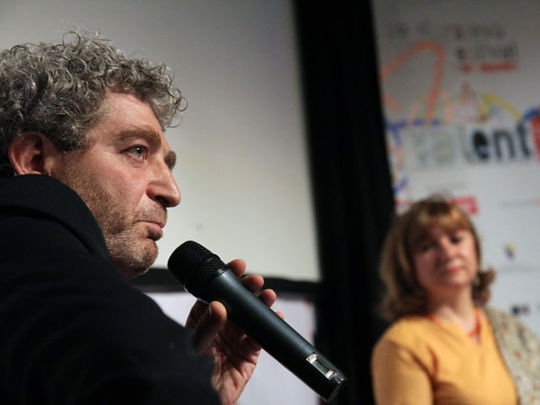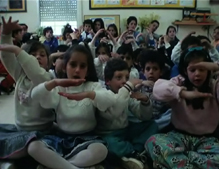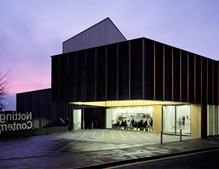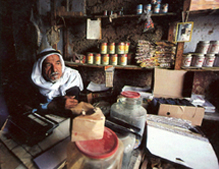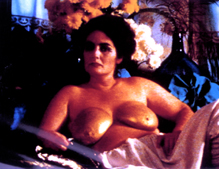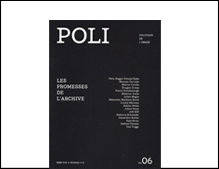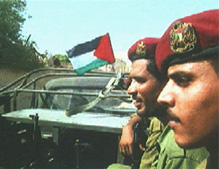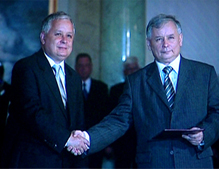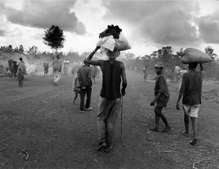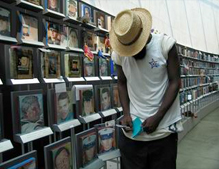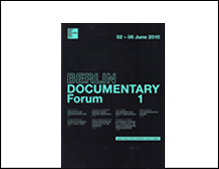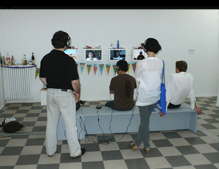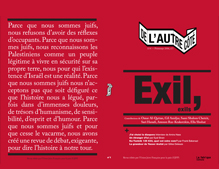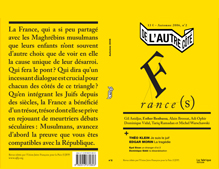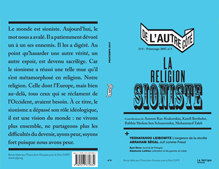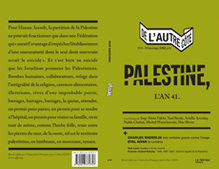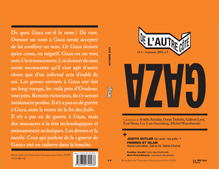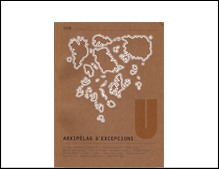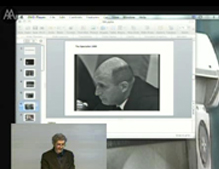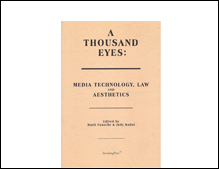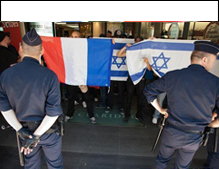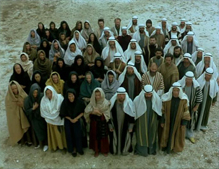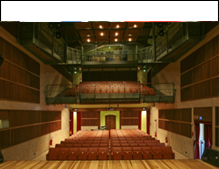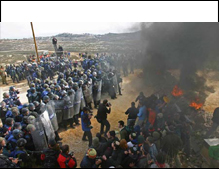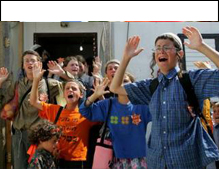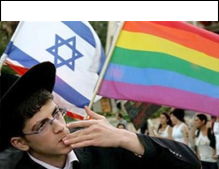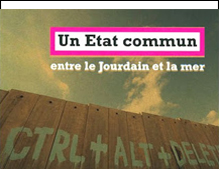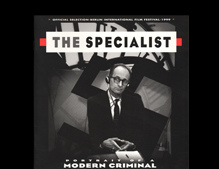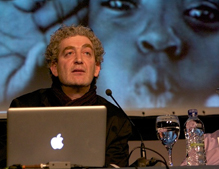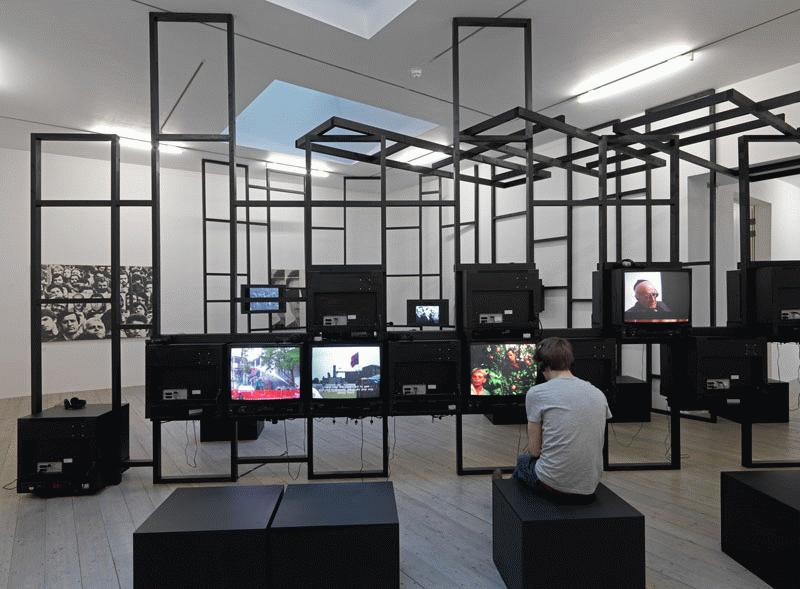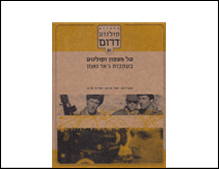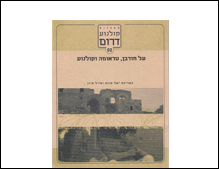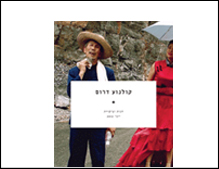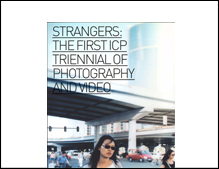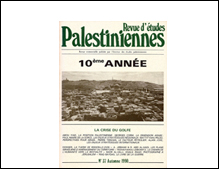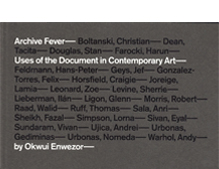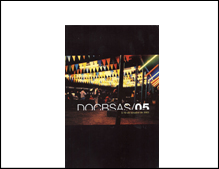-
Proposal for a visual media exhibition
with the participation of students of the Master of Film at the Dutch Film Academy, Amsterdam -
Get my films
Buy DVDs online at www.momento-films.com -
IZKOR
slaves of memory
Documentary film | 1990 | 97 min | color | 16mm | 4:3 | OV Hebrew ST -
Common Archive Palestine 1948
web based cross-reference archive and production platform
www.commonarchives.net/1948 - Project in progress - -
Montage Interdit [forbidden editing]
With professors Ella (Habiba) Shohat and Robert Stam / Berlin Documentary Forum 2 / Haus der Kulturen der Welt / June 2012 -
Route 181
fragments of a journay in Palestine-Israel
Documentary film co-directed with Michel Khleifi | 2003 | 272 min [4.5H] | color | video | 16:9 | OV Arabic, Hebrew ST
-
The Specialist
portrait of a modern criminal
Documentary film | 1999 | co-author Rony Brauman | 128 min | B/W | 4:3 | 35 mm | OV German, Hebrew ST -
Jaffa
the orange's clockwork
Documentary film | 2009 | 88 min | color & B/W | 16:9 | Digital video | OV Arabic, Hebrew, English, French ST
-
Montage Interdit
www.montageinterdit.net
Web-based documentary practice. A production tool, archive and distribution device | project in progress
-
Common State
potential conversation [1]
Documentary film | 2012 | 123 min | color | video | 16:9 split screen | OV Arabic, Hebrew ST -
Towards a common archive
testimonies by Zionist veterans of 1948 war in Palestine
Visual Media exhibition | Zochrot Gallery (Zochrot visual media lab) | Tel-Aviv | October 2012 - January 2013
-
I Love You All
Aus Liebe Zum Volk
Documentary film co-directed with Audrey Maurion | 2004 | 89 minutes | b/w & color | 35mm | OV German, French ST
AQABAT JABER, passing through 1987
86 minutes | 16 mm | colour | 4:3 | Stereo | 1987 / Location : Palestine / OV : Arabic
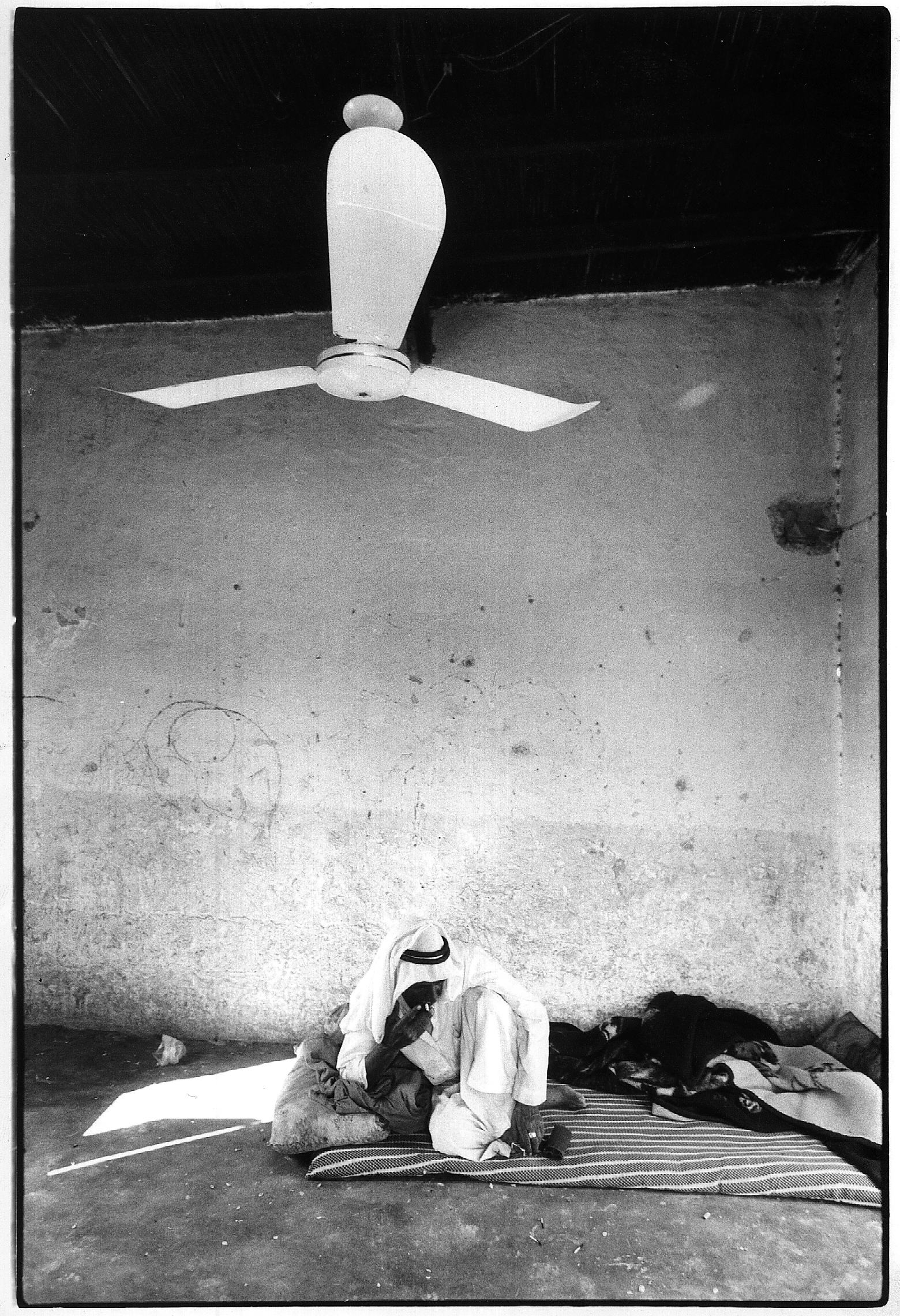




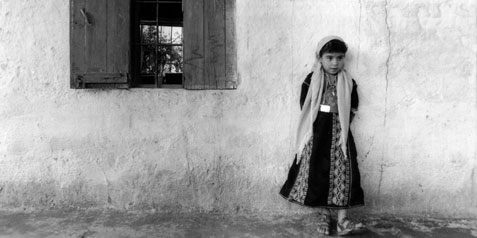

Aqabat-Jaber is one of the sixty Palestinian refugee camps built in the Middle East by the UN at the beginning of the 1950s. Filmed in 1987, a few months before the Intifada, this film tells the story of a disinherited generation brought up in the nostalgia of places they never knew and which no longer exist. The story of a temporary solution that became a permanent way of life.
Aqabat-Jaber is one of the sixty Palestinian refugee camps built in the Middle East by the UN at the beginning of the 1950s. It is the biggest camp in the Middle East situated some 3 kilometres south of Jericho. The majority of its 65,000 inhabitants came from those villages in central Palestine that were destroyed in 1948. The 1967 war pushed 95% of that population across the banks of the river Jordan. The traces of war and the effects of erosion by the desert accentuate the contrasts between the abandoned refugees and the huts that they still occupy, and make Aqabat-Jaber look like a ghost town. Filmed in 1987, a few months before the Intifada, this film tells the story of a disinherited generation brought up in the nostalgia of places they never knew and which no longer exist. The story of a temporary solution that became a permanent way of life. This film is about a ghost town, fulfilled by nostalgia and memories.

© Dune Vision [FR] 1987 – © momento production [FR] 1994
AQABAT-JABER, PASSING THROUGH
86 minutes | 16 mm | colour | 4:3 | Stereo | 1987
Location : Palestine
OV : Arabic
Sub-titles : English, French, Spanish
A film by
Eyal Sivan
Production
Dune Vision
Executive Producer
Thibaut de Corday
Based on the original idea of
Eyal Sivan and Noa Gedy
Camera
Nurith Aviv
Assisted by
Claire Bailly du Bois
2nd camera
Raymond Grosjean
Sound
Rémy Atta
Assisted by
Philippe Garnier
Assistant Director / interpreter
Mohamed Diab
2nd Assistant
Noa Gedy.
Production Coordinator
Philippa Benson
Production Manager
Thibaut de Corday
Stills
Eric Bouvet / Gamma
Editor
Ruth Schell
Sound Editor
Véronique Lange
Mix
Patrick Ghislain
Translations
Sylvana Kattar
• GOLDEN CROWN, Festikon Amsterdam, 1988
• AIR FRANCE & RADIO FRANCE AWARD, Festival du Film de Belfort 1988
• BEST SOCIO-POLITICAL DOCUMENTARY, International Film Festival Oakland, 1987
• JURY'S SPECIAL MENTION, Internationale Filmwoche Mannheim, 1988
This film goes beyond politics. It is about country people confined for the last 38 years in refugee camps, about the humiliation of being severed from their land, from their orchards, their villages. Nothing happens in the film because nothing happens in their lives. Endlessly waiting, some still cling to the hope of returning one day to their land. It is not a silent film, it cries out in its simplicity, wrenching the heart. These are human beings ?? So, what...?! Henri Cartier-Bresson
Some refugees welcome the chance to introduce themselves, air their grievances and bemoan their fates ; other scorn the filmmakers. Sivan, ever sympathetic to their conditions, extracts detailed life stories from the displaced persons as he pans the daily life at the camps. Variety
Aqabat-Jaber offers a poetic vision of homelessness a permanent state of mind. Poignancy merges with absurdity, turning the makeshift life into a kind of grotesque purgatory, a sad dreamland. The Boston Phoenix
Aqabat-jaber is a definite highlight. It's a sad and troubling look at a decrepit West Bank refugee camp where Palestinians, many displaced landowners living in exile, talk about their lives and their hopes of regaining their land. For many of these refugees, some there since 1948, the land is a symbol of lost culture and lost self-respect. Boston Herald
Aqabat-Jaber by Eyal Sivan, winner of cinéma du réel 1987, is a very powerful testimony on uprooted people of all origins. Libération
There is, in Eyal Sivan's film, the acute awareness of the camera's gaze in everyone that is filmed. Cahiers du Cinéma
A movie beyond the politics, since here scorned people are dignified and proud. Positif
A strong testimony about the uprooted from everywhere (...) A beautifull sobriety cleared out from the usual conventional speach. Libération
Eyal Sivan continues his relentless and disturbing work, from film to film, investigating thre true nature of his native country. Any study of memory, of history, of values, of the myths of Israel confronted with reality, depends, of course, and perhaps above all, for Eyal Sivan on getting to know your opponent. In this case, the enemy / partner over the last 50 years, the palestinian people. Le Nouvel Observateur
From this honest and authentic film, that hauls out poetry from poerty the depths of despair, we understand that the Prophet stopped in Aqabat Jaber, this metaphor of the palestinian deadlock. Télérama
- 06/07/1995 » "Aqabat Jaber, l'envers d'une histoire héroïque" by Catherine Humblot (Le Monde)
- 06/07/1995 » "Réfugiés palestiniens, un exil sans retour" by Jean-Pierre Perrin (Libération)
- 06/03/1995 » "L'Attente des réfugiés palestiniens" (La Marseillaise)
- 06/01/1995 » "Au bord du Jourdain, les réfugiés" (La Vie)
- 06/01/1995 » "Incarcérations" by Jacques Mandelbaum (Tribune Juive)
- 06/01/1995 » "Réfugiés palestiniens : droit au retour ?" by Lise Benkemoun (Actualité Juive)
- 06/01/1995 » "Aqabat Jaber, une paix sans retour" by Emmanuel Leclercq (Les Cahiers du Cinéma)
- 06/01/1995 » "Aqabat Jaber, Paix sans retour ?" by Roman Pons-Prades (Télé K7)
- 05/31/1995 » “Aqabat-Jaber, Paix sans retour ?" by Antoine Perraud (Télérama)
- 06/13/1991 » "Aqabat-Jaber, Passing through" by Paul Sherman (Boston Herald)
- 03/16/1988 » "Aqabat-Jaber, Passing through", by Annette Lust (Swiss Journal)
- 03/16/1988 » "Light on Palestinian plight: refugees in their own land" by Pele deLappe (People's Daily World)
- 11/01/1987 » "Aqabat-Jaber, Passing through" by Miriam Rosen (Middle East Report)
- 10/31/1987 » "Aqabat-Jaber, Vie de passage" (Rencontres Cinéma Méditerranéen Montpellier)
- 10/01/1987 » "Refugees watch themselves in award-winning film" (Palestine Refugees Today)
- 10/01/1987 » "Aqabat-Jaber, Vie de passage", by Marie Appert (Positif)
- 09/23/1987 » "Aqabat-Jaber, Passing through" (Variety)
- 09/01/1987 » "Lettre de Jérusalem - Un festival pour le public", by Bérénice Reynaud (Les Cahiers Du Cinéma)
- 08/01/1987 » "Les paysans oubliés d'Aqabat Jaber", by Robert Migliorini (Faim-Développement Magazine)
- 07/08/1987 » "La vie ordinaire d'un camp palestinien", by Bérénice Reynaud (Libération)
- 07/03/1987 » "Between acts", by Andrea King (Jerusalem Post magazine)
- 07/03/1987 » "Aqabat-Jaber, Passing through", by Dan Izenberg (Associated Press)
- 06/30/1987 » "Aqabat-Jaber, Passing through" (Agence France-Presse)
- 06/01/1987 » "Aqabat-Jaber, Passing through" (AfricAsia)
- 05/17/1987 » "New film gives flavor of refugee life", by Daoud Kuttab (Al-Fajar)
- 05/01/1987 » “Aqabat Jaber, Vie de Passage“ (Sonovision)
- 04/01/1987 » "Aqabat-Jaber, Vie de passage", by Myriam Julber-Vera (Cinéma Quatre–vingt-sept)
- 04/01/1987 » "La ville fantôme" (Les cahiers du cinéma)
- 04/01/1987 » "Incertain regard" by François Niney (De Visu)

